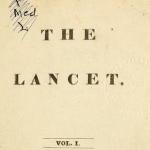Journalism is thoroughly inept and corrupt. The quality of journalism has gotten so bad that I have whittled down my trusted sources to merely a handful. Even then, when it comes to science, these sources often get it wrong.
science journalism
How much lower can the New York Times go?
Summer is upon us. While you're firing up your grills, rest assured that the ACSH staff will remain diligently working so that you don't need to worry about IARC telling you that a single hot dog will give you cancer.
A story that has gone viral (again) claims that McDonald's touchscreen menus are covered in poop. Is it true?
When I was a kid, Bill Nye the Science Guy was a thing. I never watched his show (as I was too busy keeping up with Ren & Stimpy), but he seemed fun enough. If I could go back in time, I'd probably watch.
Recently, we received a very nice note from a reader, who happens to be an organic chemist:
Spring officially has sprung. Flowers are blooming, birds are chirping, and the anti-vaxxers are getting restless. That's why we exist. So, here are some of the media mentions we received and other outreach we performed in recent weeks:
"Better safe than sorry." That's a great lesson for a child when a parent explains why she should wear a helmet when riding her bicycle. But "better safe than sorry" makes for terrible public health policy.
The Lancet is a highly respected biomedical journal that rightly carries a lot of clout in the scientific community. That's what makes its recent turn toward sensationalism and clickbait so incredibly odd.
Though we've been debunking junk science for more than 40 years, we never cease to be amazed by the amount of hype and exaggeration that continues to permeate the mainstream press.












